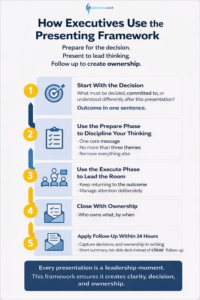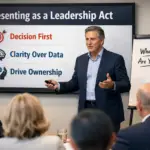When Habits Take Over: Reclaiming Ownership and Outcomes at Work
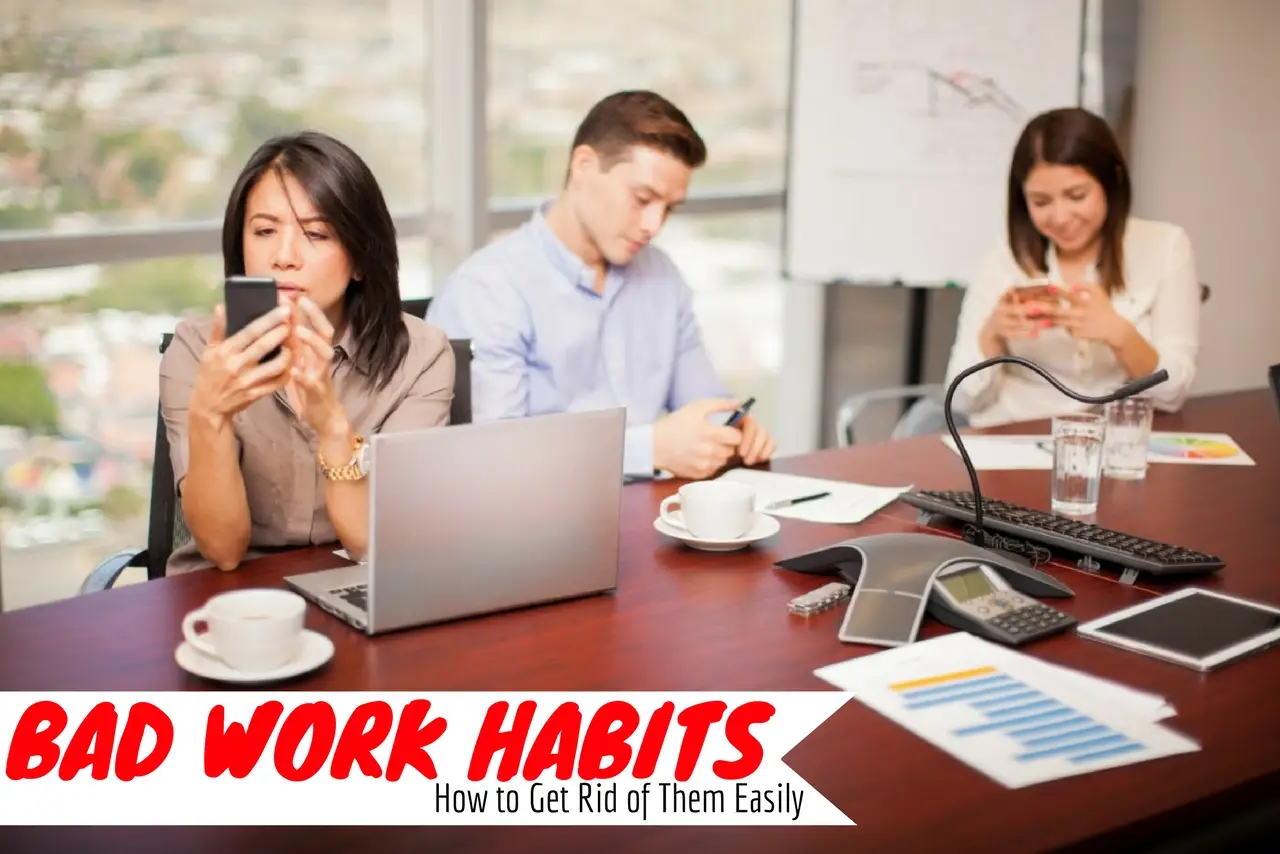
A practical outline for a playbook for leaders who want to raise performance without controlling people’s time or place.
The COVID period fundamentally changed how we work. What began as a necessary shift to remote and flexible working quickly evolved into a new normal — one that brought freedom, trust, and balance.
But in many organizations, that flexibility gradually turned into habit. Wednesday and Friday afternoons became quiet, offices half-empty, and collaboration patterns inconsistent. No one planned it that way — it simply happened.
And while hybrid working itself isn’t the issue, the erosion of ownership for outcomes often is. Over time, convenience replaced intentionality. Work flexibility became a right, but responsibility for results didn’t evolve at the same pace.
The challenge now isn’t to roll back flexibility or force people back to the office — it’s to reconnect teams with outcomes: productivity, quality, client satisfaction, and performance standards that create value.
That’s where my Way of Working comes in:
assignment > diagnostics > co-creation <> delivery <> evaluation > hyper care > handover > on-demand support
This approach is not linear. The “<>” symbols represent the iterative loop of co-creation — continuous learning, feedback, and refinement during delivery and evaluation. It’s how we turn plans into progress with people, not for them.
1. Assignment — Define “Better” in Terms of Outcomes
When an organization needs a step-up, start with outcomes, not constraints. Typical improvement goals include:
- Higher client satisfaction (CSAT/NPS) and shorter response times
- Fewer errors and rework; stronger first-time-right rates
- Clearer ownership and handovers between teams
- Healthier balance between workload, performance, and engagement
The principle: clarity over control. It’s not about managing presence, but about making results measurable and visible.
2. Diagnostics — See the System, Not the Symptoms
Before deciding what to fix, understand what’s really going on. In similar organizations, diagnostics often reveal:
- Ambiguous priorities — teams chasing multiple goals
- Invisible load — meetings, messages, and multitasking eroding focus
- Weak ownership at handovers — unclear accountability across roles
- Low feedback density — issues discovered too late for real learning
Most gaps aren’t caused by lack of effort — they stem from lack of clarity and rhythm.
📘 Theory Corner: What Harvard Research Shows
AS a member of HBR’s Advisory Council, I have access to most data and articles in their database. Here are some of the most relevant articles published. They fully underpin the approach taken in this transformation project.
- Focus on Outcomes, Not Location — HBR finds that many hybrid setups underperform because organizations focus on where people work rather than what they achieve (“Hybrid Still Isn’t Working,” HBR, 2025).
- Align Perceptions of Productivity — Studies show a major perception gap: managers often think productivity drops remotely, while employees feel equally or more effective (“Where Managers and Employees Disagree About Remote Work,” HBR, 2023).
- Human-Centered Hybrid Design — Harvard research emphasizes that hybrid success depends on how work is designed — clarity of roles, decision rights, and collaboration methods (“Designing Hybrid Work,” Harvard Business Publishing, 2024).
- Results-Only Work Environments (ROWE) — HBS research confirms that focusing on results, not hours, boosts engagement and retention — but only if accountability is transparent.
3. Co-Creation <> Delivery <> Evaluation — Learning While Doing
Real change doesn’t start with a memo; it starts when people help design it. In this iterative cycle, teams and leaders co-create how to work more effectively within existing flexibility:
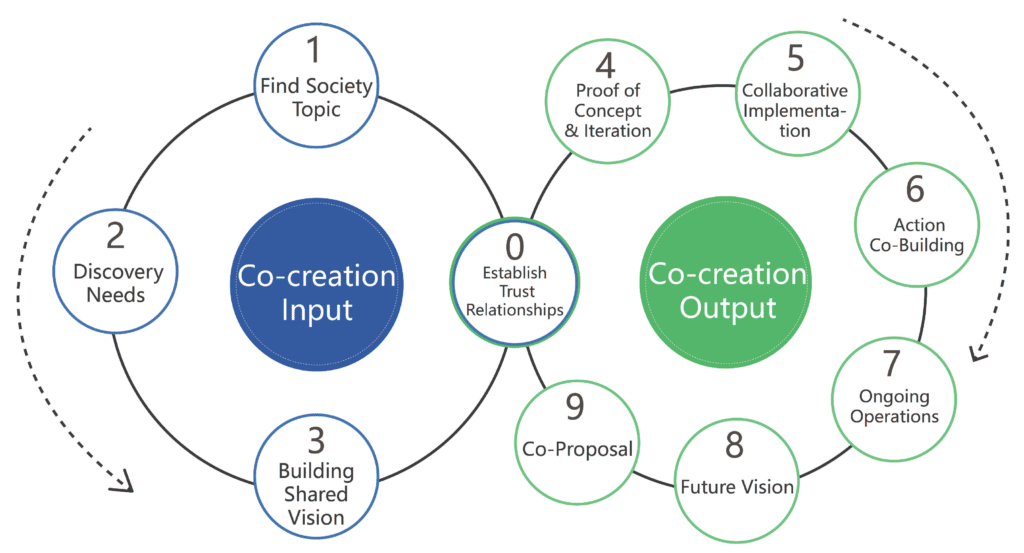
- Outcome dashboards: 3–5 measurable results per team
- Service standards: response times, escalation rules, and “definition of done”
- Meeting hygiene: purpose, ownership, and closure
- Focus blocks: dedicated time for deep work
Every 2–3 weeks, teams evaluate: What improved? What didn’t? What do we adjust? This rhythm of reflection builds accountability and keeps energy alive.
4. Hyper Care — From Excitement to Consistency
After the initial improvement cycle, discipline matters more than design. A short hyper care phase (6–8 weeks) helps new practices stick:
- Weekly “ops room” meetings reviewing key metrics
- Targeted coaching to resolve workflow friction
- Leaders consistently modelling the agreed behaviors
Consistency turns enthusiasm into performance.
5. Handover — Embed and Simplify
Once results stabilize, make them part of daily operations:
- Playbook summarizing key practices (scorecards, service standards, handover rules)
- Integrate these practices into onboarding and performance management
- Plan a quarterly “reset session” to refresh what works and retire what doesn’t
6. On-Demand Support — Keep Learning Accessible
Even high-performing teams face new challenges as conditions change. Short, on-demand coaching or quarterly reviews help sustain adaptability without creating dependency.
What Other Organizations Learned
- Focus on outcomes, not activity. Results replaced visibility as the performance measure.
- Build clear working agreements. Everyone knows what “done” means and how quality is defined.
- Make work visible. Simple dashboards replaced endless updates.
- Shorten feedback loops. Frequent check-ins replaced quarterly evaluations.
- Recognize ownership, not overtime. Success was celebrated for progress, not presence.
Leading Through VUCA: From Control to Clarity
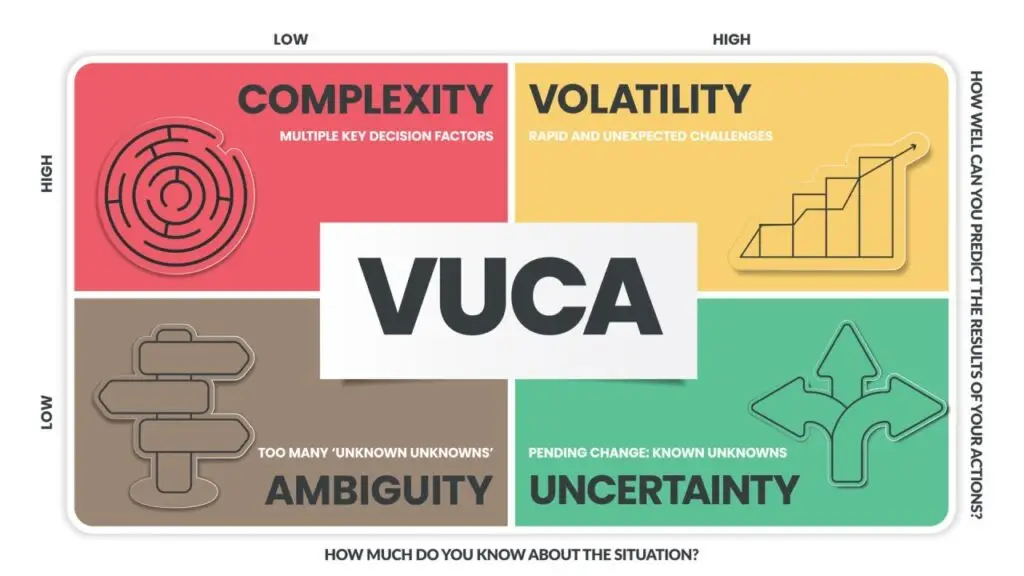
Hybrid work has amplified what many leaders already face in a VUCA world — volatility, uncertainty, complexity, and ambiguity.
When routines take over, teams lose their ability to respond to change. People work harder, but not necessarily on what matters most.
VUCA demands leaders who create clarity without control:
- Volatility calls for stability of purpose — leaders must continuously translate change into direction.
- Uncertainty requires trust — so people feel safe to act even when not everything is known.
- Complexity needs structure — not bureaucracy, but clear ownership and visible priorities.
- Ambiguity asks for reflection — taking time to learn and adapt instead of rushing to old habits.
In this environment, leadership is not about deciding for others but creating the conditions for others to decide well. Your ability to connect flexibility with focus — and autonomy with accountability — becomes the real differentiator between chaos and progress.
When seen through the VUCA lens, the Way of Working turns into more than a process model.
It becomes a navigation system that helps leaders and teams stay oriented when circumstances shift — enabling sustainable performance, learning, and trust even in uncertainty.
The Leadership Shift
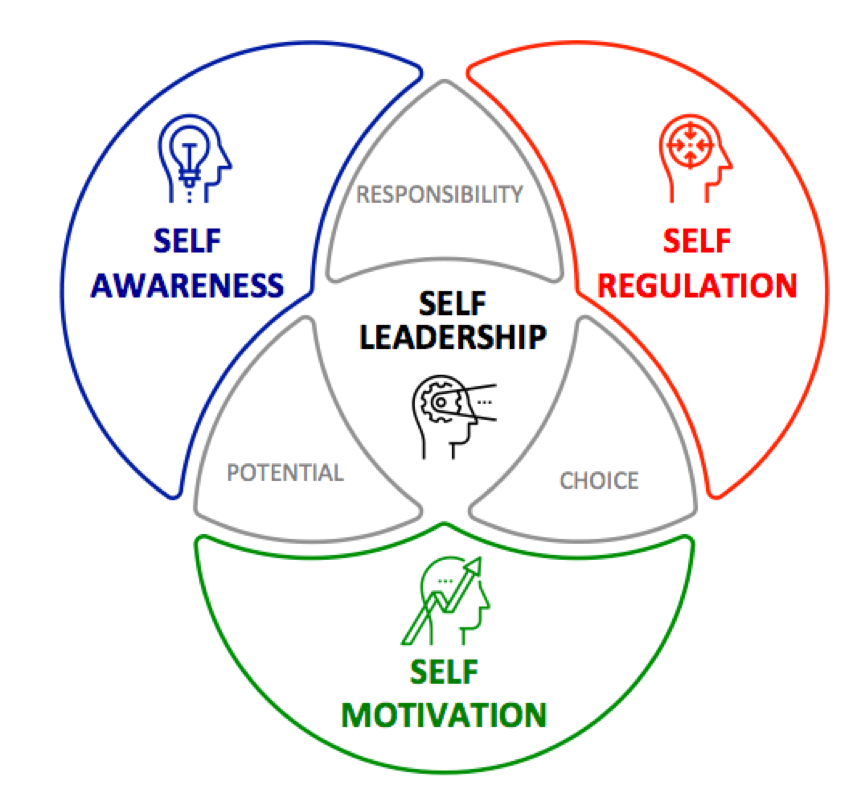
When flexibility turns into habit, accountability fades. When flexibility is paired with shared ownership for outcomes, it becomes a competitive advantage.
Leaders don’t need to control when or where people work — they need to create clarity, rhythm, and trust, so teams can own and deliver results with pride. That’s how organizations strengthen both performance and reputation — becoming profitable and a preferred place to work.
Reflection for Leaders
Where in your team has flexibility become routine instead of intentional — and what one clear outcome could you co-create your people around this month?
Ready to Create Change That Lasts?
Many leaders recognize the same pattern: flexibility turned into habit, ownership faded, and performance became uneven. The good news — these challenges can be turned into momentum.
Through structured dialogue, clear outcomes, and co-creation, teams rediscover their rhythm, focus, and pride in delivering results.
If your organization faces similar dynamics and you want to rebuild clarity, accountability, and energy — let’s talk. Together, we can design a Way of Working that fits your context, strengthens leadership, and translates flexibility into performance.
📩 Contact Jan Salomons
Let’s explore your challenge and co-create the next step:
👉 salomons.coach/contact

